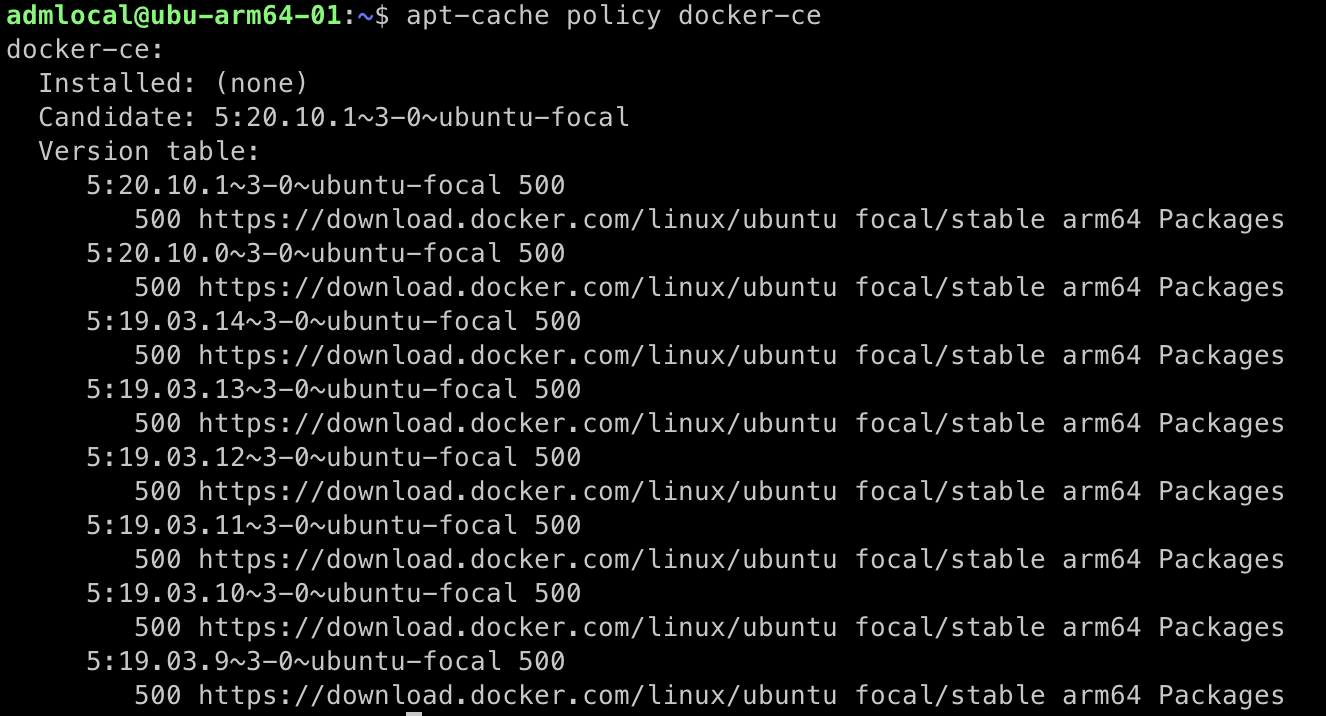Installing Docker
First add the required dependencies and the security key:
sudo apt-get -y install apt-transport-https ca-certificates curl software-properties-common |
Add Docker’s official GPG key:
curl -fsSL https://download.docker.com/linux/ubuntu/gpg | sudo apt-key add - |
Make sure that the key fingerprint is 9DC8 5822 9FC7 DD38 854A E2D8 8D81 803C 0EBF CD88:
sudo apt-key fingerprint 0EBFCD88 |
Add the Docker repository corresponding to your CPU architecture and Operating System version (arch=arm64):
sudo add-apt-repository "deb [arch=arm64] https://download.docker.com/linux/ubuntu $(lsb_release -cs) stable" |
If instead of a 64 bits OS, you want the 32 bits version (also covered by Raspberry Pi 4), you should change the reference to the architecture **in the previous command to [arch=armhf].
Finally update the repository sources:
sudo apt-get update |
Also guarantee that you are about to install from the official Docker repository, instead of the default Ubuntu repo:
apt-cache policy docker-ce |

We have finished setting up the repository!!
Then install Docker:
sudo apt-get -y install docker-ce |
Check version
sudo docker -v |
Add your user to docker group:
sudo usermod -aG docker ${USER} |
So that this change takes effect you have log out and log in again.
Installing Docker Compose
This component **is avaible as a Python package that makes very easy its installation. First install the Python package manager:
sudo apt install python3-pip |
Then install Docker Compose:
sudo pip3 install docker-compose |